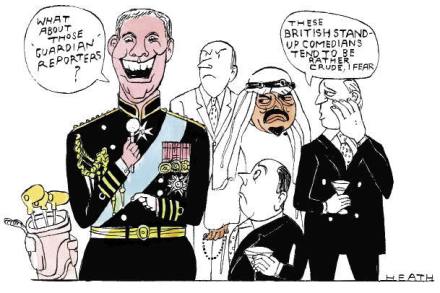Trump Considers New Low
This is, I’m pretty certain, just the usual sort of publicity-whoring nonsense but, just in case it comes to anything, we’d have a new winner in the Worst, Most Ludicrous Presidential Candidate Ever stakes: Let’s get one thing straight: Donald Trump doesn’t want to run for president. Honestly, he doesn’t. Not interested. But because the country is in such dire straits, he says, the business tycoon and perennial publicity hound just might have no choice. The country needs him. “For the first time really would think about it. And I am thinking about it. It doesn’t mean I want to do it. I’d prefer not doing it. I’m having a











